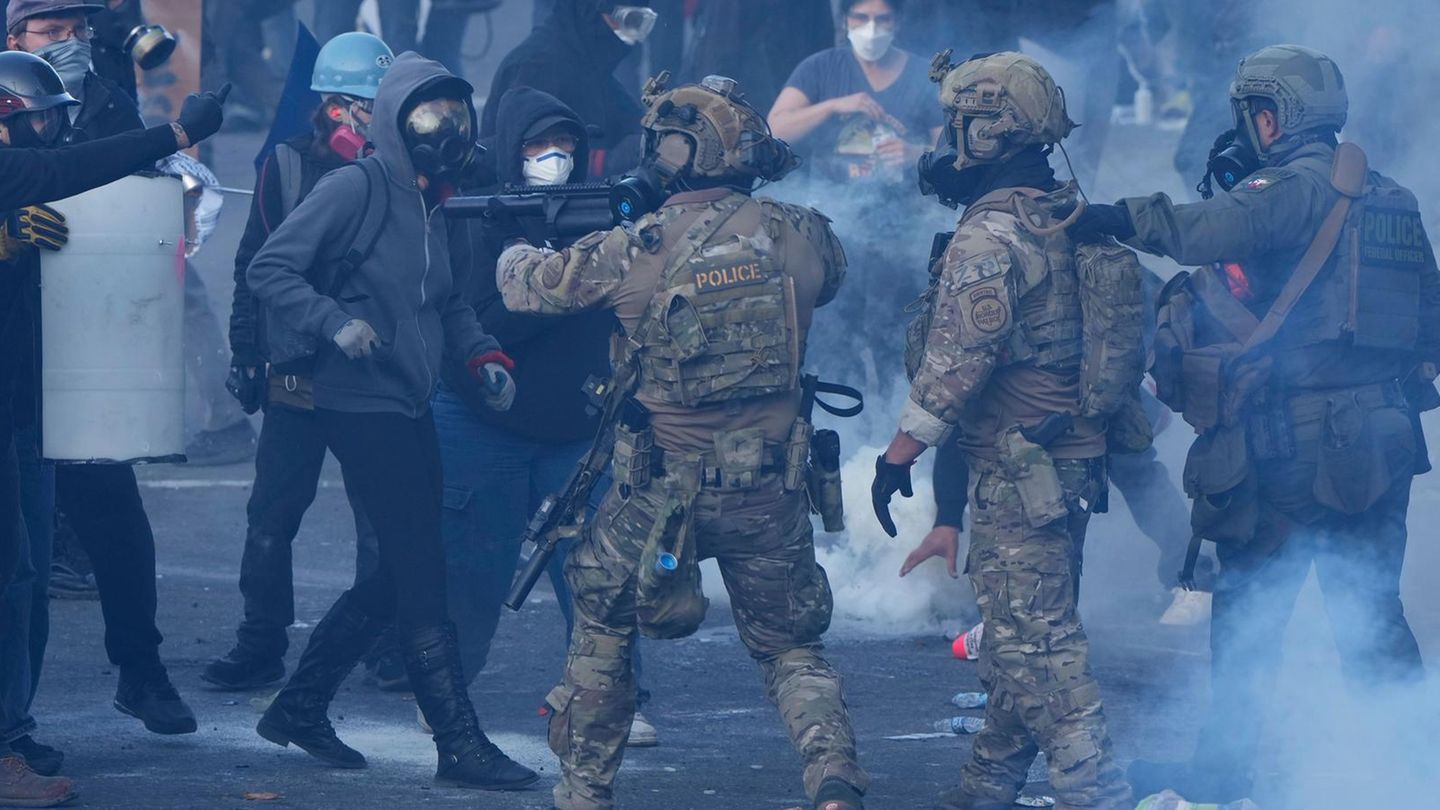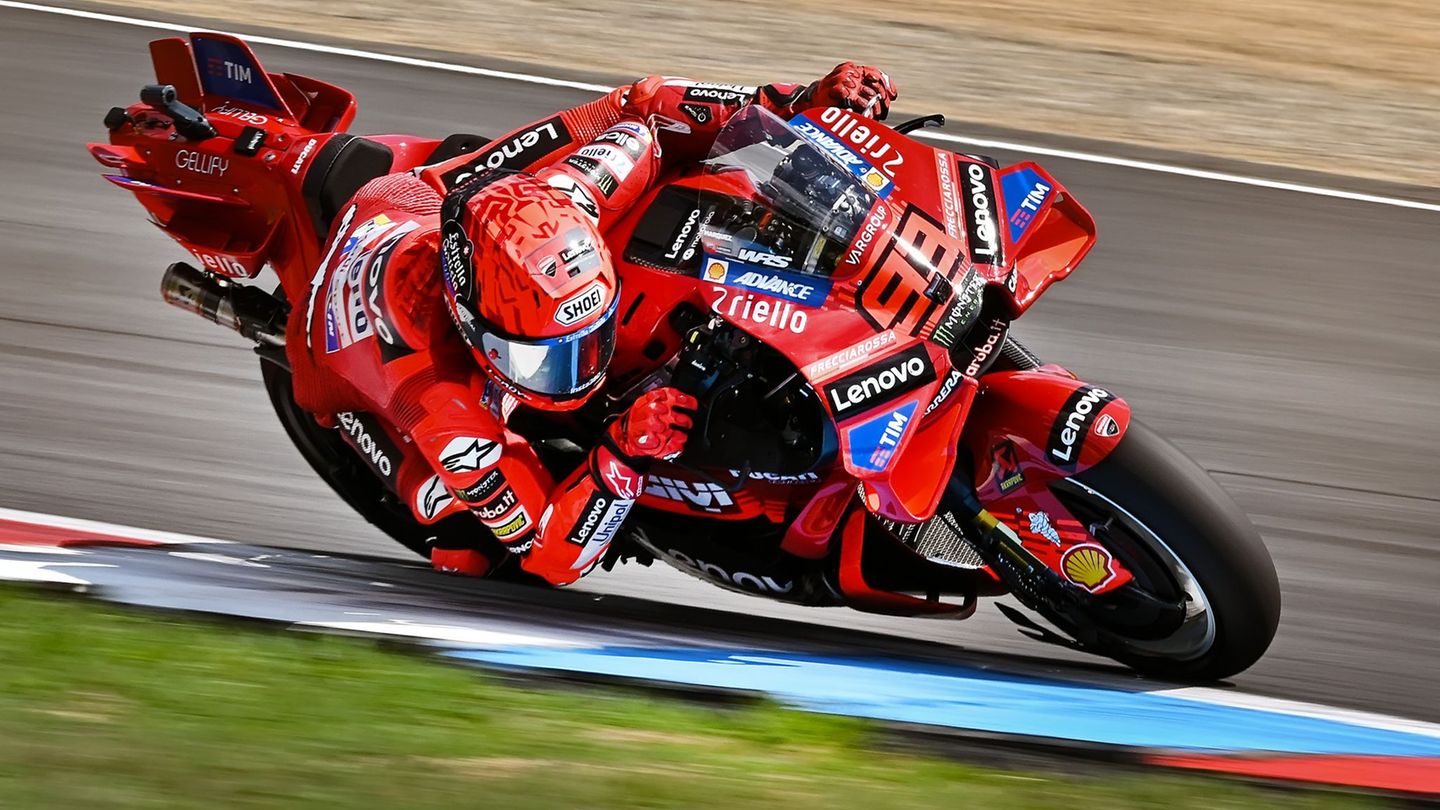A year after the meager Olympic record, the prospects at the World Cup for Germany’s track and field athletes are not dazzling either. Cancellations like that of javelin throwing ace Johannes Vetter are difficult to cope with.
Since taking office a good two years ago, the German head coach in athletics, Annett Stein, has primarily been in demand as a crisis manager.
And even at the World Championships from Friday to July 24 in Eugene, the chances of success for the German Athletics Association after the Corona crisis and Olympic disappointment are rather clouded. Withdrawals from medalists and a string of pre-season illnesses among top athletes put the desired significant upswing in jeopardy.
“It would be nice if there were more medals than at the Olympics,” said Stein. “We always have a hard time with numbers, even if I have one in mind.” It doesn’t take a lot of arithmetic to guess that winning only three medals at the Tokyo Games in the US state of Oregon is unlikely to be surpassed – if at all.
Important podium contenders are missing
Because four contenders for the podium had to pass: in the javelin throw Johannes Vetter – third at the 2019 World Championships – and European champion Christin Hussong, plus the ex-vice world champion in the heptathlon, Carolin Schäfer, and the Olympic silver medalist in walking, Jonathan Hilbert.
Other top performers such as the two-time European obstacle course champion Gesa Krause and running ace Konstanze Klosterhalfen were affected by a cold or a corona infection in preparation for the World Cup. The World Championship third over 5000 meters will compete in Eugene over 10,000 meters. Niklas Kaul is also worried. The decathlete has had a difficult time struggling with injuries since the 2019 World Cup triumph. “Of course it’s a handicap. We are a bit weakened by it, »said Stein about the high number of cancellations and injuries.
Trump Mihambo
It is therefore particularly important that the few trumps win. Above all Malaika Mihambo: For the Olympic, world and European champion, who managed the longest jump of the year with 7.09 meters, defending the title is not a sure-fire success. “You don’t get anything for free, so I’m humble,” said the 28-year-old three-time athlete of the year. In general, it’s not so much about medals and titles anymore. Mihambo explained: “I see the competition as an inner championship.”
Discus thrower Kristin Pudenz (29) is less reserved and, inspired by the Olympic silver medal, also wants to hit the World Championships. “I wouldn’t do anything but describe myself as a medal candidate,” said the Potsdam resident courageously. At the German title fights in Berlin, she underlined her ambitions with a personal best of 67.10 meters.
Javelin thrower Julian Weber doesn’t want to be stacked either. He missed bronze by just 14 centimeters at the Tokyo Games and is in the spotlight after Vetter’s withdrawal. “The world elite is strong, but I’m strong too,” said the 27-year-old from Mainz. At the meeting in Hengelo he threw 89.54 meters closer than ever to the 90 meter mark. “I want to keep throwing and get a medal,” he said. The fact that German rivals Vetter and Thomas Röhler – Olympic champion of 2016 – are missing should strengthen his confidence.
Pole vaulter Bo Kanda Lita Baehre is on a promising path. In the national title fights, he crossed 5.90 meters for the first time and climbed to fifth position in the world rankings. The 23-year-old, fourth in the World Championships, has thus flown into the world class with the Swedish high-flyer Armand Duplantis. “In terms of ability, I’m closer to being involved at the front,” said the staff artist.
Surprises urgently needed
Surprises are badly needed. “The World Cup is our number one target competition. We will measure according to how many coaching positions and funding we receive, »said head national coach Stein. In 2019 in Doha, the DLV aces won six medals, including two gold medals from Mihambo and Kaul. In the US city of Eugene, around 80 German starters will be competing.
The DLV is not worried that the home EM three weeks later in Munich could be emotionally more attractive for the athletes, reduce the absolute focus on the World Cup and made one or the other World Cup cancellation easier. “If you’re in shape and you start, you don’t worry about what will happen three weeks later,” said CEO Idriss Gonschinska. “I would at least wish that.” But he understands the anticipation of the home game: “The EM 2018 in Berlin was an athletics party that everyone would like to experience again.”
Source: Stern
I have been working in the news industry for over 6 years, first as a reporter and now as an editor. I have covered politics extensively, and my work has appeared in major newspapers and online news outlets around the world. In addition to my writing, I also contribute regularly to 24 Hours World.




